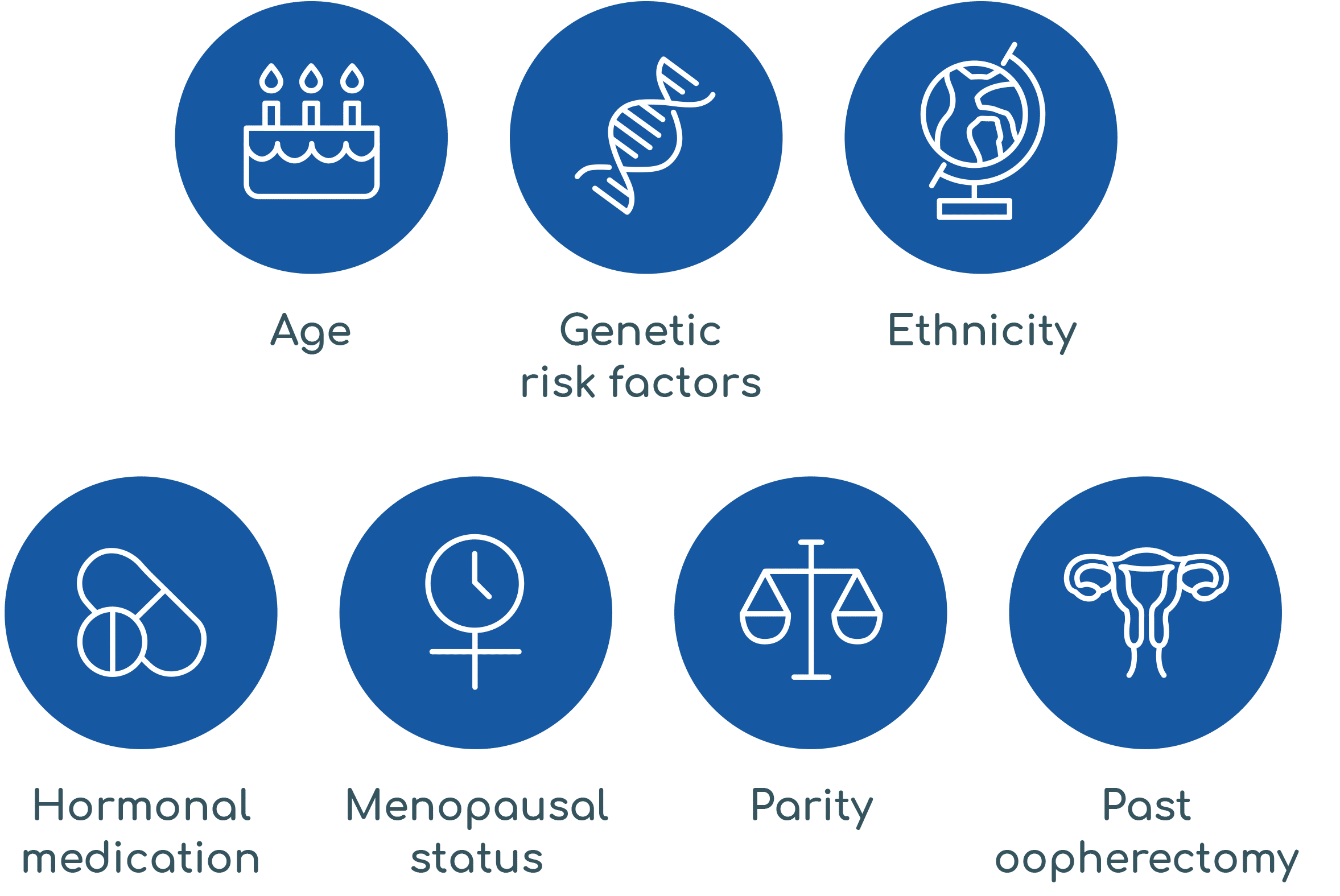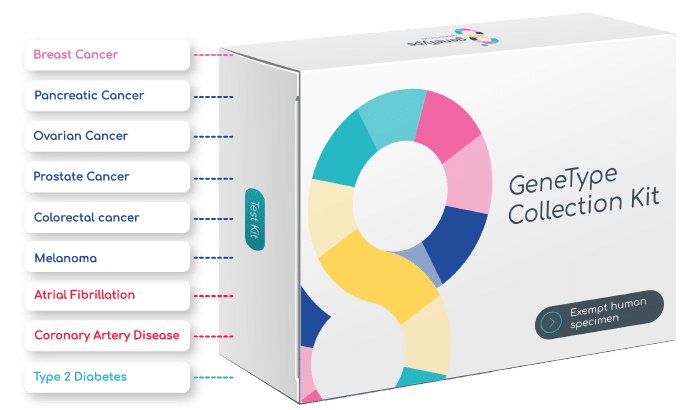Don’t let ovarian cancer go unnoticed
Ovarian cancer often doesn’t lead to noticeable symptoms until late in the disease.1 GeneType empowers women by increasing their awareness of the disease.
Do you know what you may carry?

Is geneType for Ovarian Cancer right for you?
GeneType for Ovarian Cancer is for:
- Women
- Aged 30 years or older
- No known hereditary breast and ovarian cancer (HBOC) gene mutation e.g. BRCA1 or BRCA2

Simple, actionable results
GeneType reports help you and your health provider translate your personal clinical, family and genetic data into an actionable prevention health plan.
Unlike other tests, your test results are provided in simple language that you can understand.
Sample patient report
Have questions? We have answers.
If your question is not shown here, please contact us directly.
Who is this test not suitable for?
This test is not applicable to women who have a personal history of ovarian cancer or who have already been shown to have an HBOC mutation, for example in the BRCA1 or BRCA2 gene, or a diagnosis of a genetic syndrome that may be associated with elevated risk of ovarian cancer. In this case, your health provider will refer you to a specialist for genetic counselling.
Will insurance cover this test?
GeneType for Ovarian Cancer combines several of risk factor, such as age, family history, and your DNA markers, into one comprehensive risk assessment.
Know your risk of ovarian cancer so you can take action

*Patient eligibility dependent on personal medical history, age and sex
Interested in ordering more than one disease? Order geneType Multi-Test.
See individual disease pages for more information about each test.
The Multi-Risk suite of tests is for adults 40-85 years of age. At maximum, a woman would be eligible for 8 diseases in the panel; a man would be eligible for 7. Starting at age 30, a patient may qualify for geneType's cancer risk assessments only.
What’s happening?
Start the conversation about Breast Cancer risk
Under the fluorescent lights of a doctor’s office, it’s not always easy to know what questions to ask. Here are some breast cancer risk questions…
Proactive steps for breast cancer risk reduction
Breast awareness is important whether you are 35 or 75. When you understand your risk, you can be a better advocate for yourself…
GeneType: A new era for Genetic Technologies
Genetic Technologies changed a lot in the last year. Our product innovations, expansion into new therapy areas and acquisitions…
References
- US Preventive Services Task Force. JAMA 2018;319(6):588–594.
- NCCN Clinical Practice Guidelines in Oncology (NCCN Guidelines®). Genetic/Familial High-Risk Assessment: Breast, Ovarian, and Pancreatic. Version 2.2022 — March 9, 2022.








